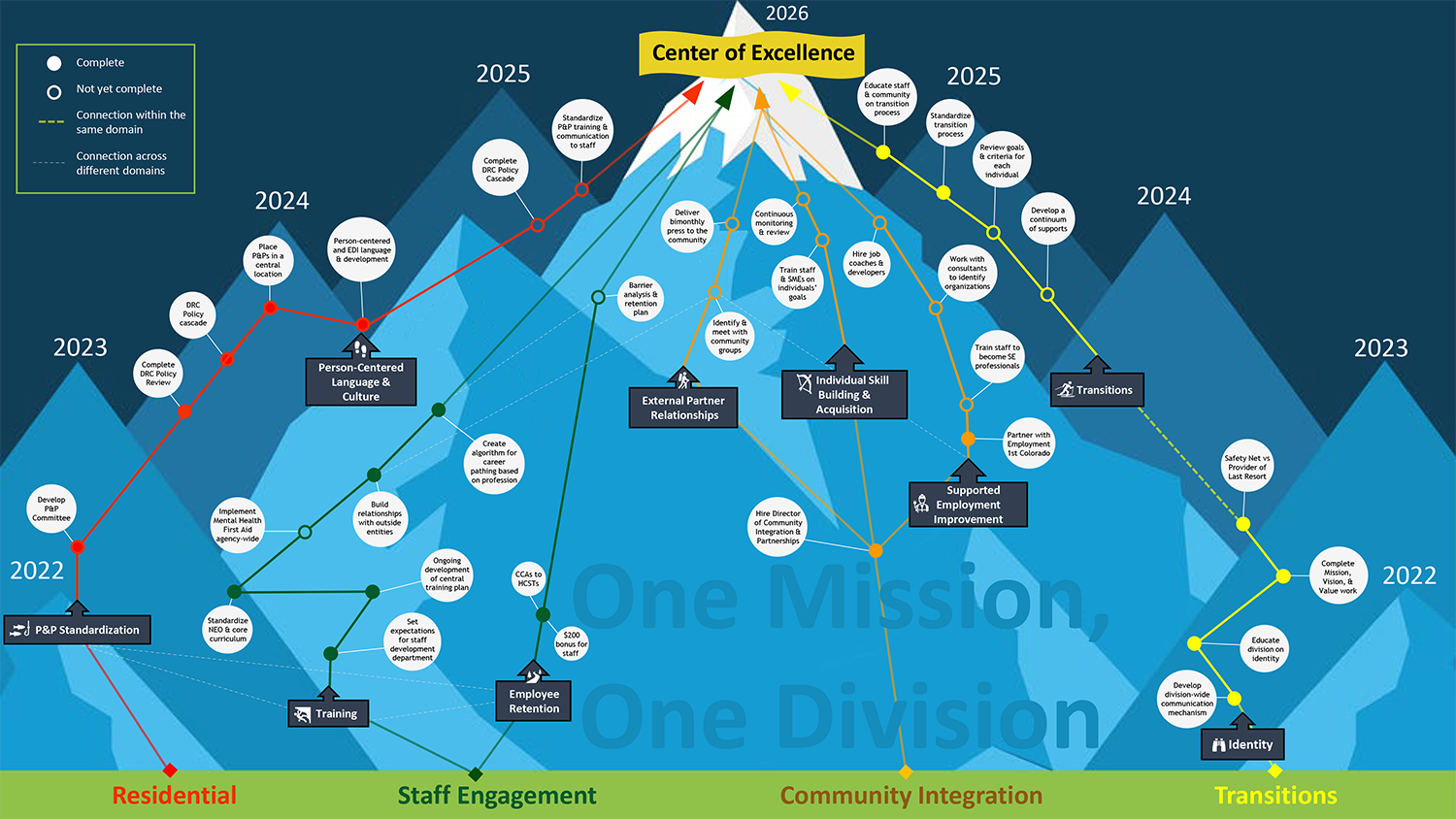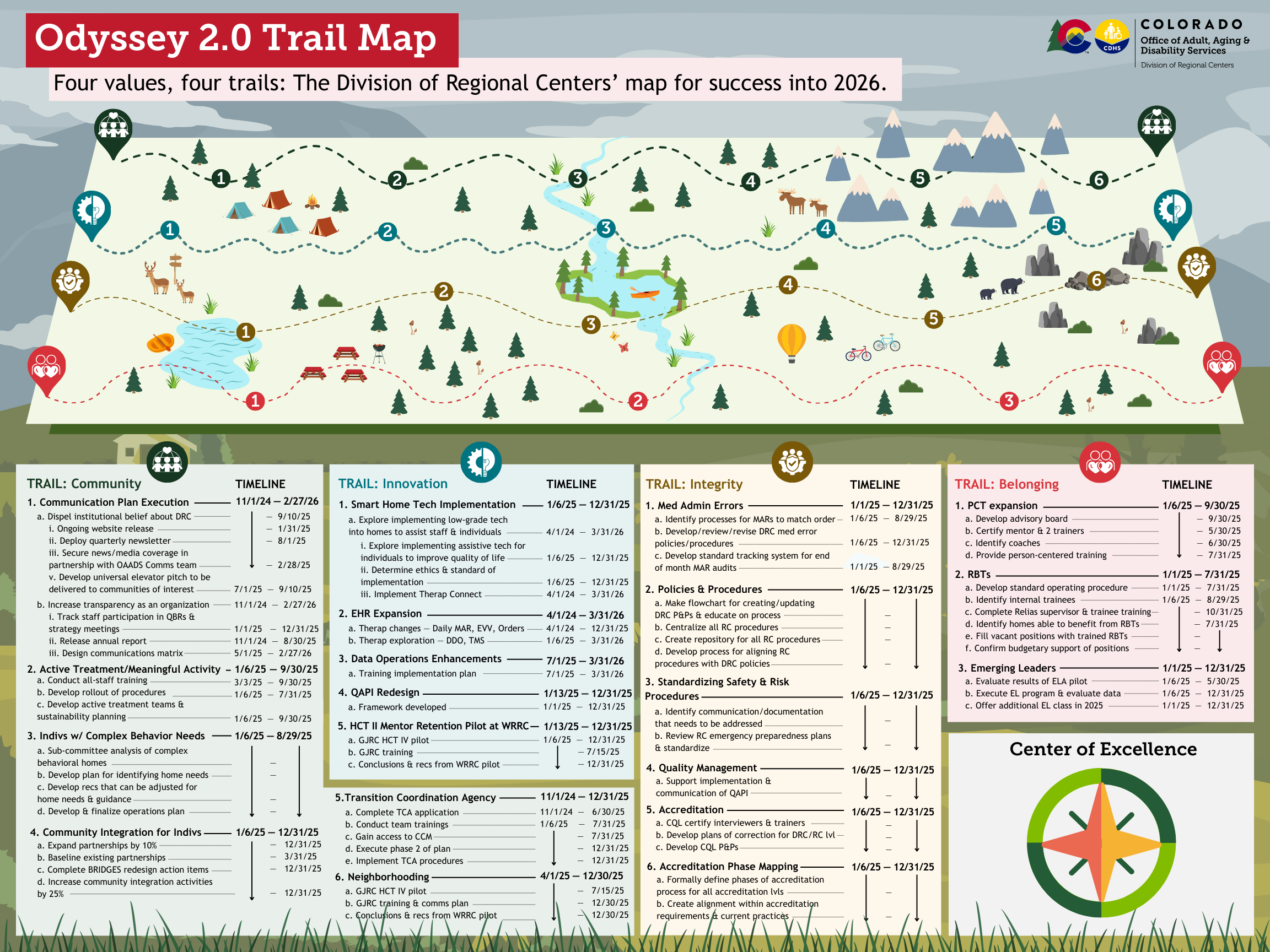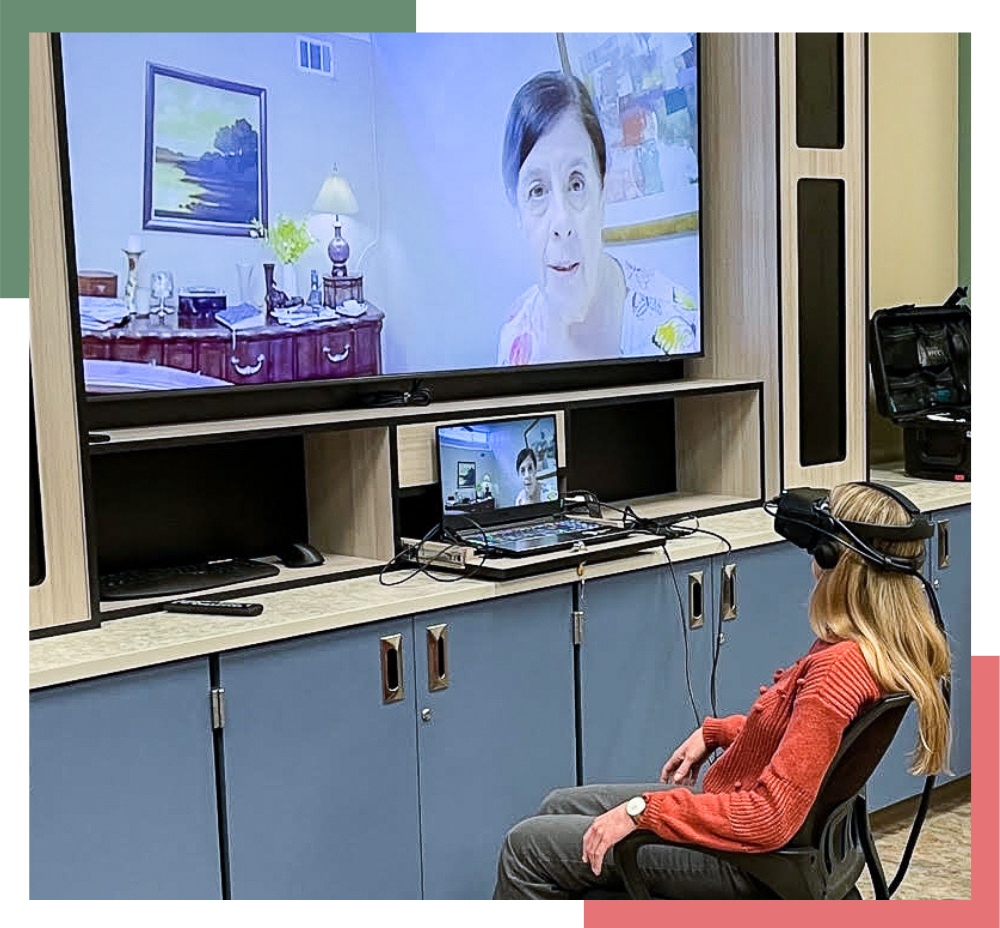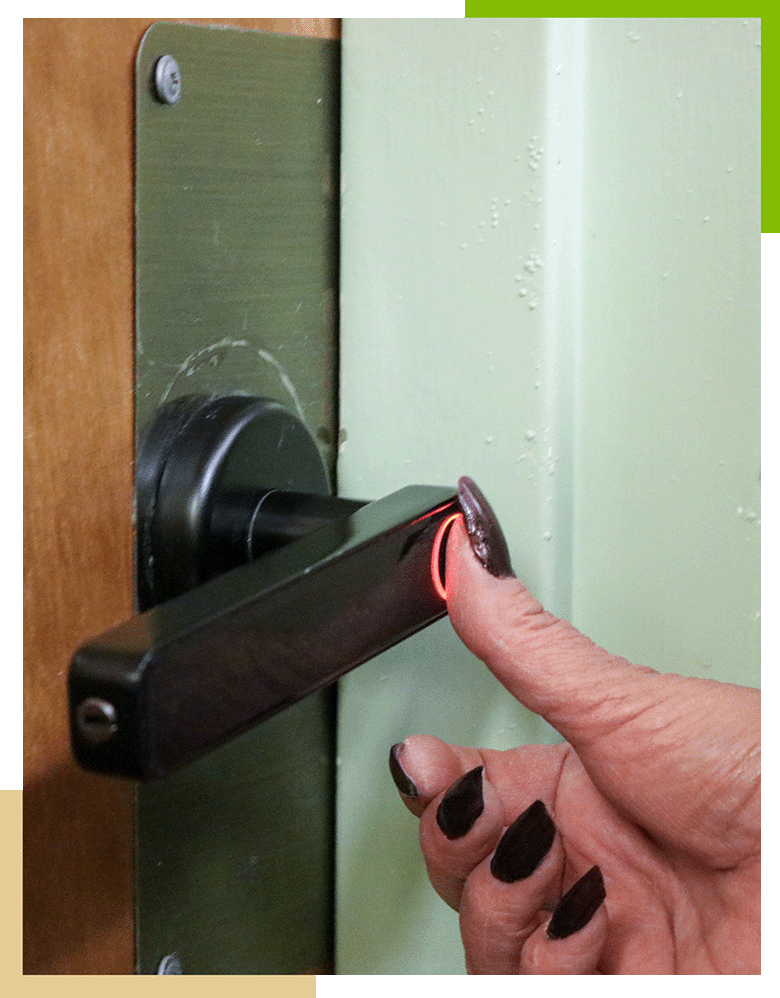Regional Centers Pathway to Excellence

The Division of Regional Centers (DRC) is on a path to excellence to become a nationally recognized Center of Excellence by 2026. Through the Division Odyssey, grants and advanced training, the Division is enhancing support for individuals with intellectual and developmental disabilities (IDD) and setting new standards for quality, independence and innovation in services.
Division Odyssey
DRC is undergoing a transformation known as the Division Odyssey. The Odyssey is a roadmap of important milestones and initiatives that the Division needs to undertake in order to accomplish this goal. These paths will lead the Division to achieve the pinnacle destination by becoming a Center of Excellence by 2026 and be recognized nationally for all the great work and support services provided to individuals living at the three Regional Centers.
In order to do this, the Division has created a five-year plan to improve the way it does business, celebrates best practices and continues to innovate in an ever-changing system.
To view larger versions of the Division Odyssey graphics below, click the image, then click the magnifying glass or + icons at the bottom of your screen.
Division Odyssey 1.0

Division Odyssey 2.0

Division Odyssey principles
Mission
To support people with IDD through high quality, innovative and comprehensive services to empower individuals to live the lives they choose.
Vision
To become a Center of Excellence for services in Colorado for the IDD community by the end of 2026.
Vehicle
- Executing our Strategic Plan to actively work towards excellence.
- Partnering with the Center of Quality and Leadership for accreditation will ensure holistic implementation of individual-centered practices and recognition for best practices.
- Measure performance using the Results Driven Management System, enabling DRC to work both in and on the business simultaneously.
Grants
DRC seeks opportunities to apply for local and national grants in order to increase resources, training and services to both individuals and staff. The Regional Center teams have been honored to be awarded grants that help improve operations and offer better training experiences for all staff.
Embodied Labs
Embodied Labs is at the forefront of transforming healthcare education through its innovative virtual reality training platform. Designed to bridge the gap between theory and practice, this groundbreaking technology offers both new and experienced staff a unique opportunity to delve into crucial healthcare topics in an immersive environment.
With Embodied Labs, staff members can step into virtual scenarios that simulate real-life healthcare settings, allowing them to gain invaluable firsthand experience. Whether it's understanding the complexities of aging, navigating end-of-life care or addressing the challenges of living with disabilities, the platform covers a wide range of topics essential for healthcare professionals.
The objective is clear: to provide an immersive learning experience that not only educates but also fosters empathy and understanding. By immersing themselves in these virtual environments, staff members can better comprehend the needs and perspectives of the individuals they support, ultimately enhancing job readiness and improving patient care.

View and download informational flyers on Embodied Labs and how DRC can best use this technology.
Money Follows the Person
Money Follows the Person (MFP), a federal grant administered by the Centers for Medicare and Medicaid (CMS), aims to allow individuals to choose where they live and receive services.
The work this grant supports represents further investment in the services and supports implemented under HB 18-1326.
The MFP Capacity Building Grant funding provides the Division of Regional Centers the opportunity to become an approved Transition Coordination Agency (TCA). Becoming an approved TCA improves our ability to develop solutions to build capacity, streamline access to services, and improve business processes to support individuals during their transitions.
Smart home technology
Smart home technology provides a network of connected devices including thermostats, security systems, door locks, lighting systems and kitchen appliances which can be monitored and controlled remotely through Wi-Fi, smartphones, tablets or voice commands.
Benefits
Individuals living at the Regional Centers can benefit from smart home technology in various ways:
- Independence: Smart home devices can empower individuals to perform daily tasks independently, such as adjusting the thermostat, turning lights on and off or locking doors, thus promoting autonomy and self-reliance.
- Safety and security: Smart home security systems provide peace of mind for staff members and guardians and ensure the safety of the individuals, especially those prone to wandering or accidents.
- Routine support: Automated routines and reminders set up through smart home assistants can help individuals manage their daily schedules, medication reminders and other tasks, promoting consistency.
- Communication: Voice-controlled devices can serve as communication aids for individuals with speech or language difficulties, allowing them to express their needs more easily.
- Environmental control: Smart home technology allows for personalized environmental adjustments, contributing to a comfortable and sensory-friendly living environment.
- Remote monitoring and support: Staff and family members can remotely monitor the well-being of the individuals through connected devices, receiving alerts for unusual activity or emergencies and providing assistance as needed, even from a distance.
Pilot with UC Denver
DRC entered an agreement with the University of Colorado Denver through the Center for Inclusive Design and Engineering (CIDE), to identify and assist with the implementation of smart products. This technology is designed to improve automation and independence for individuals living in group homes in the Pueblo Regional Center’s community.
The goals of this CIDE project encompass stakeholder engagement planning, technology pilot in residential settings and resident usability testing.
The overall outcomes of this technology pilot are to:
- Improve independence and quality of life of individuals living with cognitive impairment.
- Spark a cultural change among staff, with an increased emphasis and support of individuals to attain greater independence.
Upon the successful completion of the smart home technology pilot, the program will be scaled up to include all DRC group homes across the state.
